Women & Children
Eye health for women and children remains a major concern for Palestinian communities, particularly during times of crisis.
Both groups are among the most vulnerable, facing unique challenges that can lead to preventable blindness and long-term health issues.
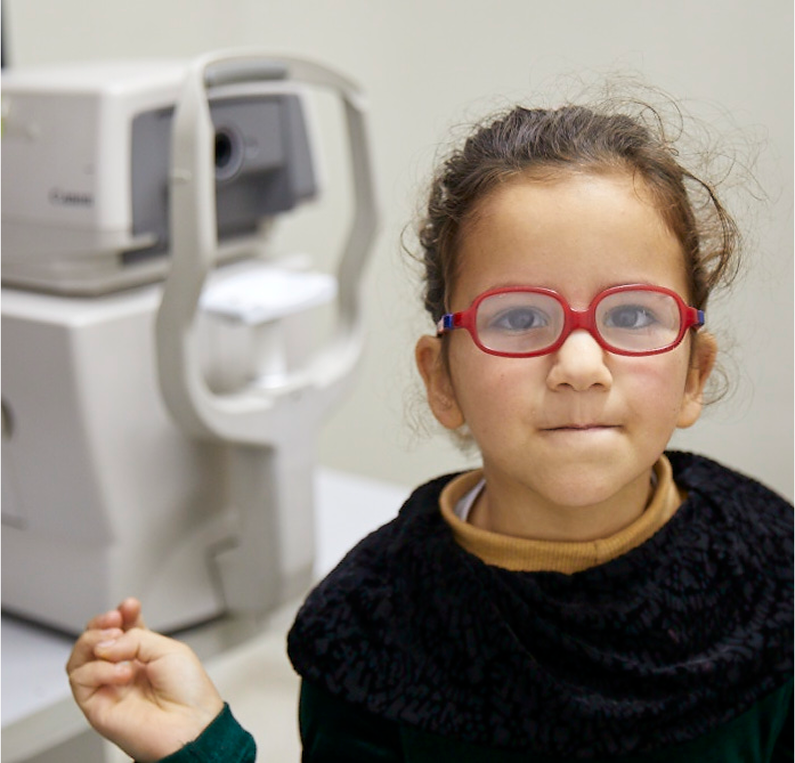
Children
For many eye conditions, early intervention is critical – especially before the age of 7. If left untreated, these conditions can lead to permanent blindness, depriving children of their future opportunities.
Blindness in Palestinian children results in a lifetime of dependency, social isolation and limited access to education. In 2024, over 40% of our patients were children under the age of 18 years.
We screen children throughout the region, and our dedicated paediatric specialists provide essential care to a population of over 2 million children.
In 2024 we launched a new Child Screening Service in the West Bank which significantly expanded the number of children screened, identifying those in need of further treatment. This initiative has already led to more children being referred to our hospitals and clinics for specialised care.
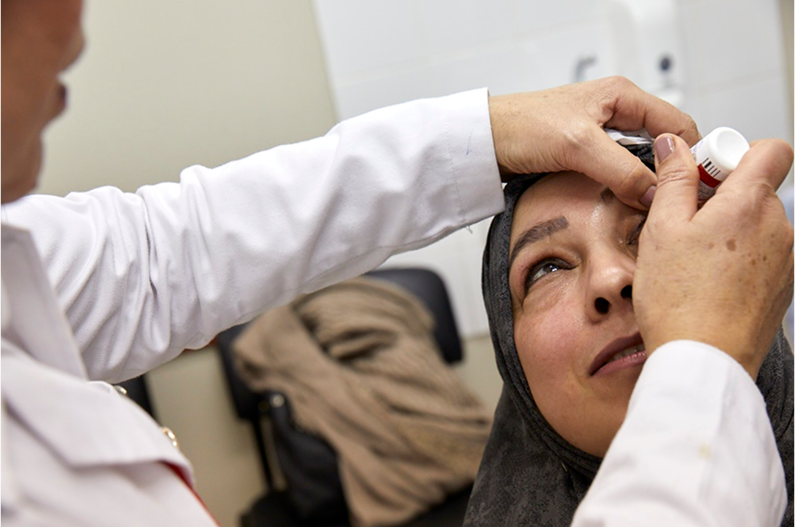
Women
Women in the region face particular barriers to accessing healthcare, including cultural, physical, and financial challenges. By expanding our services for women, we can ensure that more women and children receive the critical eye care they need.
We are committed to improving women’s eye health and supporting care-seeking behaviours within communities. Our work with women and children aims to reduce health inequities, empower families, and ensure better access to quality care for all.
CURRENT PROJECTS
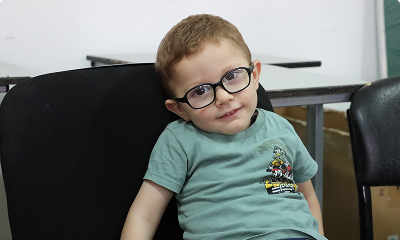
Child Screening Initiative in the West Bank
Launched in 2023, this programme screens children living in refugee camps in the West Bank. In its first year, over 50,000 children were screened, and around 19% of those screened were referred for further diagnosis, treatment or surgery at our hospitals.
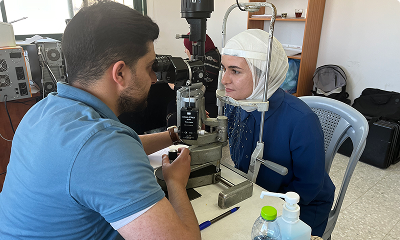
Mobile Clinics for Remote Communities
Our mobile clinics reach children in isolated and Bedouin communities, ensuring that all children – no matter where they live – have equal access to essential eye care services.
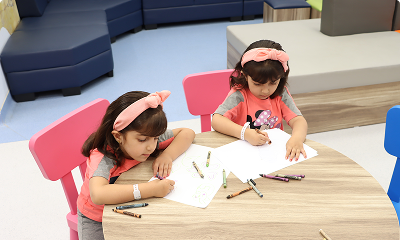
Equity of Care for Women and Children
We’ve targeted communities representing women, children and people living with disabilities – groups that are often excluded from regular healthcare. 79% of patients seen in our outreach programme are women or young girls, a key achievement in improving healthcare access for marginalised groups.
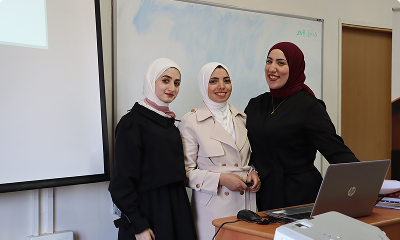
Empowering Women in Healthcare
Women make up 38% of our workforce, and half of our recent nursing school graduates are women. We are proud to champion gender equality and remain committed to supporting and advancing women throughout our organisation.
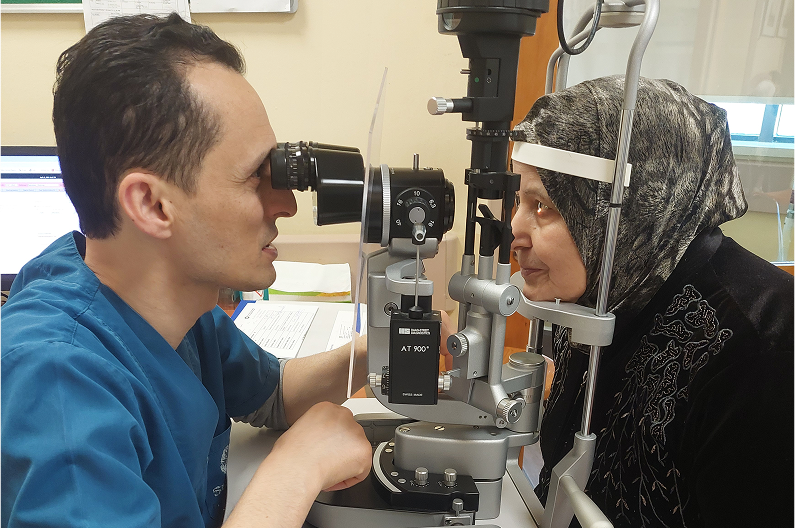
MUNA’S STORY
Mother of eight Muna’s already challenging living circumstances were made harder by significant health issues, including cataracts in both eyes.
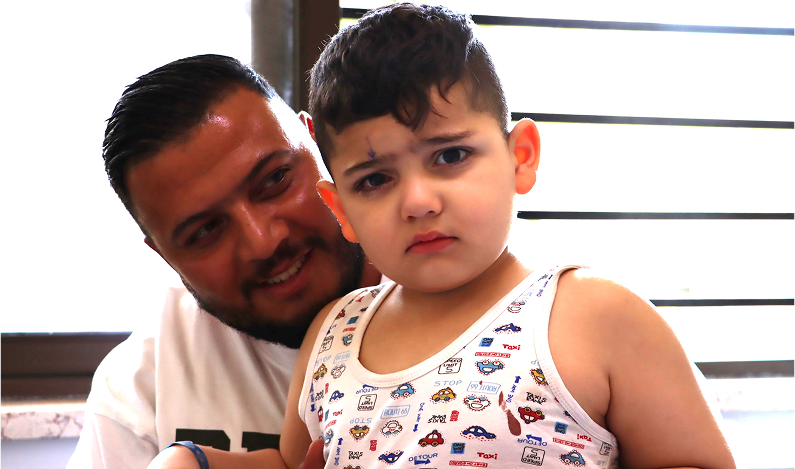
RASLAN’S STORY
Raslan, a four-year-old Palestinian refugee, was suffering from uncomfortable eye issues even after being prescribed glasses.
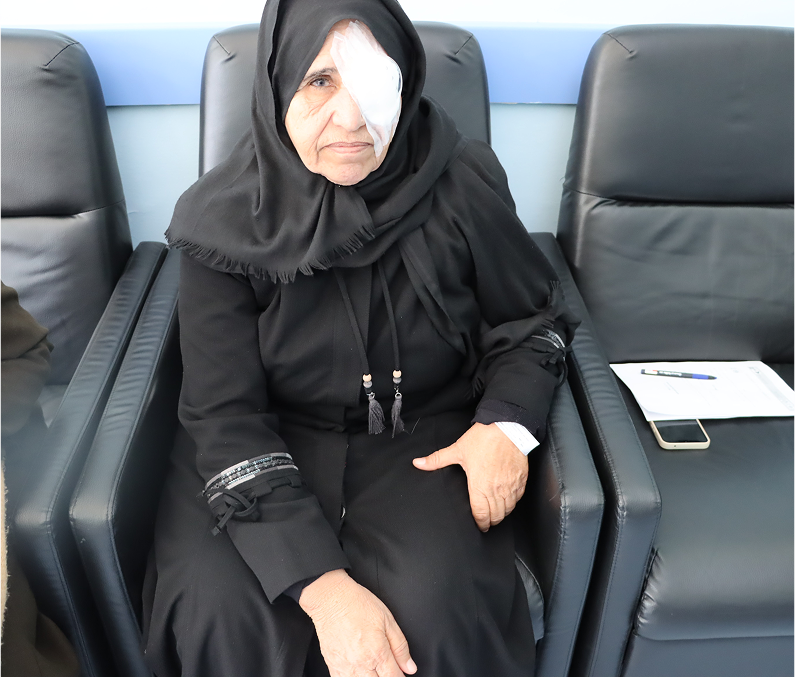
Challenges and Barriers to Care
We are working to overcome the many barriers preventing Palestinian women and children from receiving adequate eye care, including:
- Poor access to eye care due to physical, financial, and knowledge barriers
- Poverty and unemployment, which limit access to essential health services
- Consanguinity and inherited eye diseases, which contribute to a higher incidence of preventable conditions
- Fragmented healthcare systems, which result in inconsistent and sometimes inadequate care
- Gender inequality, which disproportionately affects women and limits their access to health services





